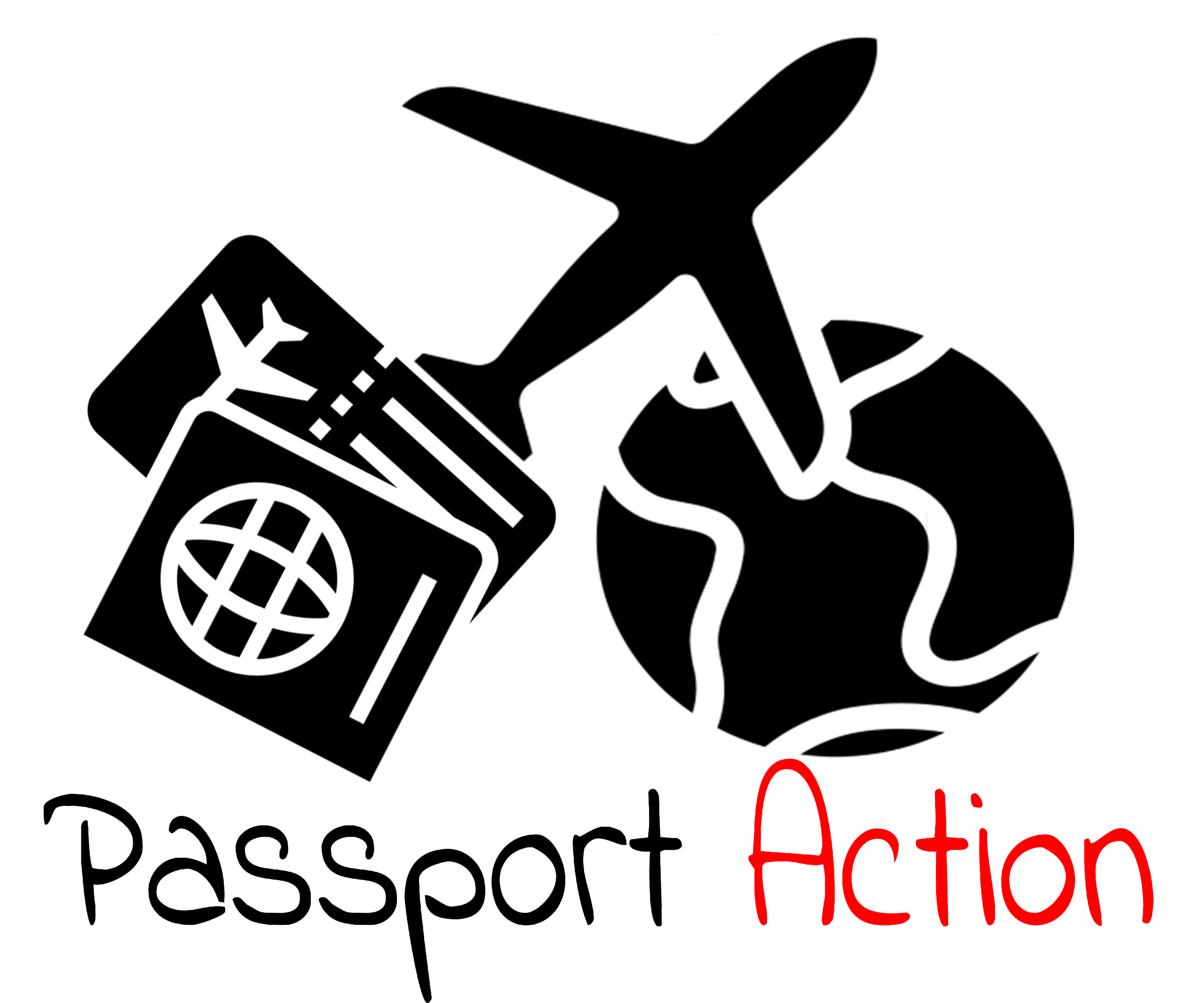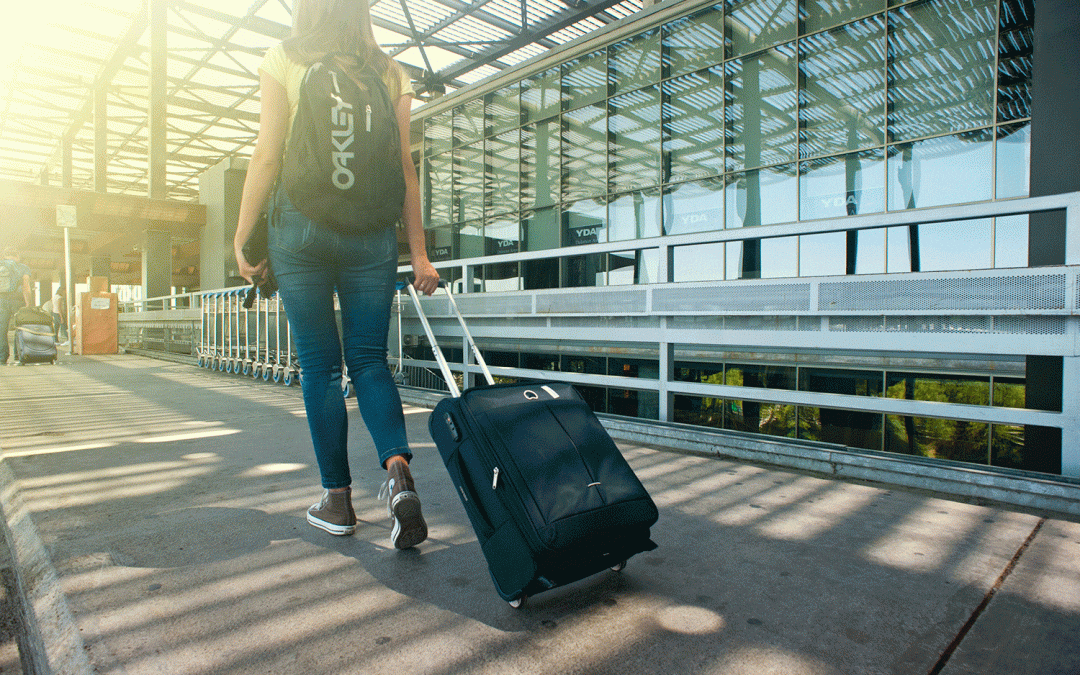Staying Alert and Safe: A Guide for USA Travelers Over Seas
The world is an exciting place, full of rich cultures, breathtaking landscapes, and unforgettable experiences. However, the recent worldwide travel alert for U.S. travelers overseas has emphasized the need for increased vigilance, particularly due to potential terrorist threats. But fear not, with the right precautions and tools like the Step app, you can still explore the world safely.
The State Department Issues Worldwide Caution Warning For USA Travelers
Recently the US State Department Issued a warning to all Americans who are traveling abroad to exercise extreme caution due to possible terrorist attacks. You can find out more about US State Department Travel Advisories here.
Story Time. Back when I was contracting I was living in the Middle East. I had an actual apartment I was living in off the military base and it was my first time abroad. I can recall one day when Me and one of my friends was getting into an elevator and a guy came to the elevator and put a box inside and walked off. Immediately I was not having that. I told him he needed to get in the elevator with us if he wanted that box to come down with us lol. The guy didn’t speak English but I pushed the box out with my foot lol. And he would come back and point down. Long story short I did not allow him to keep the box in the elevator with us. This is the type of caution every American should be using regardless if the State Department issued a warning or not.
The Power of the Step App
The Smart Traveler Enrollment Program (STEP), offered by the U.S. Department of State, is a vital tool for any American traveler. The Step app allows you to register your trip and receive real-time updates about safety conditions in your destination country. It sends alerts about potential safety issues, including terrorist threats, enabling you to make informed decisions about your travel plans. In the event of an emergency, the U.S. Embassy can use the information you provide through STEP to contact and assist you. You can find this app in our 10 Best Travel Apps Guide.
Familiarize Yourself with Local Laws and Customs
When planning to travel abroad, understanding the local laws and customs of your destination is an essential step in your preparations. It not only ensures that you respect the cultural norms but also protects you from potential legal issues. Here’s how you can familiarize yourself with local laws and customs to have a safe and enjoyable trip.
Start by conducting thorough research about your destination. The internet is a vast treasure trove of information where you can find resources about local laws and customs. Travel guides, blogs, forums, and official government websites can provide you with valuable insights. Look for information about dress codes, local etiquette, tipping practices, and laws that might be different from those in your home country. For example, some countries have strict regulations about photography, while others may have unique traffic laws.
Another effective way to familiarize yourself with local customs and laws is by connecting with locals or expatriates from your home country who are living in the destination country. Social media groups and online communities can provide a platform for this interaction. They can offer first-hand advice, share their experiences, and answer any specific questions you might have. Remember, though, while these insights can be incredibly helpful, they should be used as a supplement to official resources, not a replacement.
Once you arrive at your destination, continue your learning process. Observe the behavior of locals and follow their lead. If you’re unsure about something, don’t hesitate to ask. Most people appreciate the effort made by visitors to understand and respect their customs.
In conclusion, familiarizing yourself with the local laws and customs when traveling abroad can significantly enhance your travel experience. It allows you to show respect for the culture, avoid legal problems, and fully immerse yourself in the local lifestyle. Remember, being a responsible traveler means appreciating the differences and embracing the diversity that makes our world so fascinating.
Keep Digital Copies of Essential Documents
When preparing for international travel, safeguarding your important documents should be a top priority. One effective way to ensure their safety is by creating digital copies. This simple step can save you from potential stress and complications during your trip, especially if your physical documents are lost or stolen.
Digital copies of your passport, visa, driver’s license, and travel insurance policy can be easily stored in a secure online location such as a password-protected cloud storage service. Some travelers also keep scanned copies saved on their smartphones or tablets. This means that even if you lose your physical documents, you still have access to the necessary information and can prove your identity when required. It can also expedite the replacement process at your country’s embassy or consulate.
However, while digital copies are incredibly useful, they should not replace the need for proper care of your physical documents. Always keep your original documents in a safe place, like a hotel safe or hidden pouch, when not in use. And remember, although digital copies can assist in emergencies, they may not be accepted in all situations where official identification is required. Therefore, the simultaneous care of both your digital and physical documents is crucial when traveling abroad.
Stay Healthy, Stay Safe
Staying healthy and safe is paramount when traveling abroad. It allows you to fully enjoy your trip without unnecessary disruptions or discomfort. Here are some important considerations to ensure your wellbeing while exploring foreign lands.
Before you set off, it’s crucial to check the health advisories for your destination. This includes understanding the necessary vaccinations and any prevalent diseases. If you’re on prescription medication, make sure to carry enough supplies for the duration of your trip, along with a copy of your prescription. It’s also wise to pack a first-aid kit with essentials like band-aids, antiseptic wipes, and over-the-counter medications for common ailments like fever, cold, or upset stomach.
When it comes to food and water, be cautious. Try to eat freshly cooked food and avoid raw or undercooked dishes, especially in regions where food hygiene may not be up to standard. Drinking bottled water is generally safer than tap water. Remember, staying hydrated is essential, but it’s equally important to ensure the water you consume is clean and safe.
Physical safety is another critical aspect. Research about the general safety conditions of your destination, including any areas that are best avoided. Always be aware of your surroundings and keep your belongings secure. Using a money belt or an anti-theft backpack can help protect your valuables. At the same time, try not to display expensive items that might attract unwanted attention.
Lastly, consider purchasing travel insurance. It can provide coverage for various scenarios such as medical emergencies, trip cancellations, or lost luggage. While we all hope our travels go smoothly, it’s always better to be prepared for any unexpected incidents. By considering these factors, you can ensure that your exciting journey abroad is also a healthy and safe one.
Maintain Regular Communication
Lastly, remember to maintain regular communication with friends or family back home. Share your itinerary so they know where you are at all times. Regular check-ins via phone, email, or social media can provide an additional layer of security.
Navigating communication when traveling abroad during a State Department travel advisory can be challenging but is crucial for ensuring safety and maintaining connections with loved ones. During such periods, reliable and frequent communication becomes more than just a convenience—it’s an essential part of your travel strategy.
Before leaving, it’s important to register with the Smart Traveler Enrollment Program (STEP), a free service provided by the U.S government to U.S citizens who are traveling to, or living in, a foreign country. It allows the State Department to assist you better in an emergency and provide important safety and security information about the destination. Also, ensure that your loved ones and emergency contacts have your overseas contact information, including the address and phone number of where you’ll be staying.
Mobile phones are the most direct means of communication, but roaming charges can be high. Consider options like purchasing a local SIM card or using an international roaming plan from your current provider. However, remember to keep your phone charged and carry a portable charger, especially during times of uncertainty. In some situations, the internet might be more reliable than cellular networks. Apps like WhatsApp, Skype, and Viber can be used for messaging and calls over Wi-Fi.
During a travel advisory, staying informed is critical. Check the State Department’s website regularly for updates and follow their instructions. Social media can also be a useful tool for real-time updates. But remember, while digital communication tools are valuable, nothing replaces common sense and intuition. Stay vigilant, avoid risky areas, and always prioritize your safety. Balancing the need to stay connected with the importance of enjoying your travel experience can lead to a more fulfilling and safer journey.
In light of the worldwide travel alert, it’s clear that vigilance and preparedness are key for U.S. travelers heading overseas. By taking these preventative measures and using resources like the Step app, you can ensure that your exciting journey is safe and secure. Happy travels!

